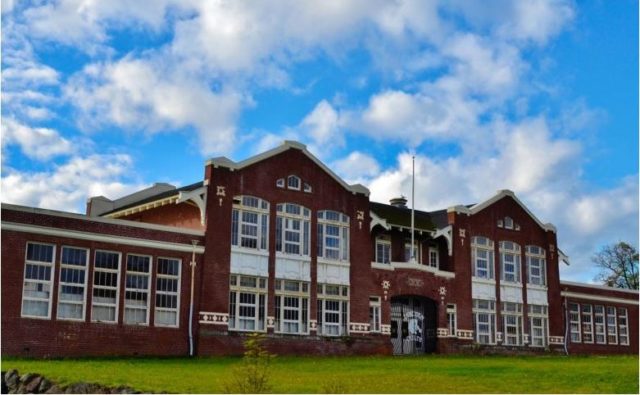
By Pepper Fisher
PORT ANGELES – The historic North Olympic History Center (NOHC) on West 8th Street in Port Angeles, still known by many as the Lincoln Elementary School Building, is on the market, though not necessarily for sale.
In 1991, when the decommissioned school was purchased by the Clallam County Historical Society, the dream was to transform the school into a museum and administrative offices.
Since that time, the non-profit group has been renamed the North Olympic History Center, and the hope of renovating the massive 75-year-old building has been deemed, after much study, both impractical and beyond the group’s fundraising capacity.
But, without major upgrades to the building, the group can’t occupy it. They are now looking for someone to take over ownership of the property, and a Request For Proposals was issued on Monday. However, NOHC Executive Director David Brownell says, that doesn’t mean it’s necessarily “for sale”.
“I want to clarify that it’s not necessarily for sale. And the gist of the RFP is, if a proponent has a proposal that essentially divests us of the school building at no cost to us, that we would accept that proposal. We’re not even necessarily looking to sell it. We’re looking to divest ourselves of the building.”
Brownell said, in making its decision, the Board determined that raising the tens of millions of dollars that would be needed to renovate the school and upgrade the grounds was beyond its capacity, and would take away time and energy from its core mission of “connecting the future, through the present, with the past.”
The entire campus consists of a little more than two acres. What’s being offered does not include the southern portion of the property, where the NOHC research library and artifact storage facility are located. It does include the one acre of grass and landscaping on the north side.
Brownell acknowledges that whoever acquires the property might find that it is not worth saving.
“Obviously, we would absolutely prefer for the school building to be saved, but we recognize that the scope of that is far beyond what we can do, and that’s going to be up to the proponent to take that on.”
That said, we asked Brownell to describe what the ideal proposal might look like.
“If we had our way, in a perfect world, what we would love to see happen is, to find either a non-profit or a consortium of nonprofits that are community-focused, community-centric organizations, that would basically split up the space inside that building for office space, community center, what have you. That would be our absolute dream, to have something like that next door.”
The RFP and supporting documents can be found at northolympichistory.org.
